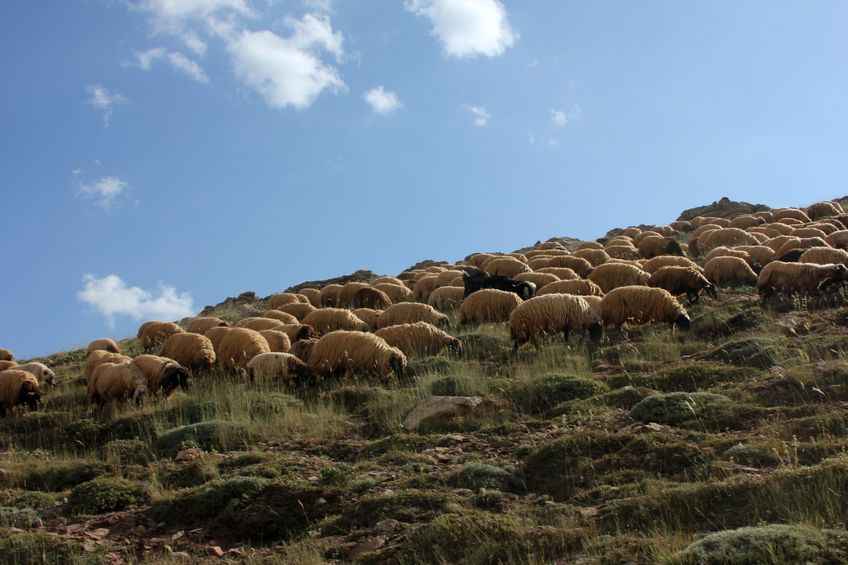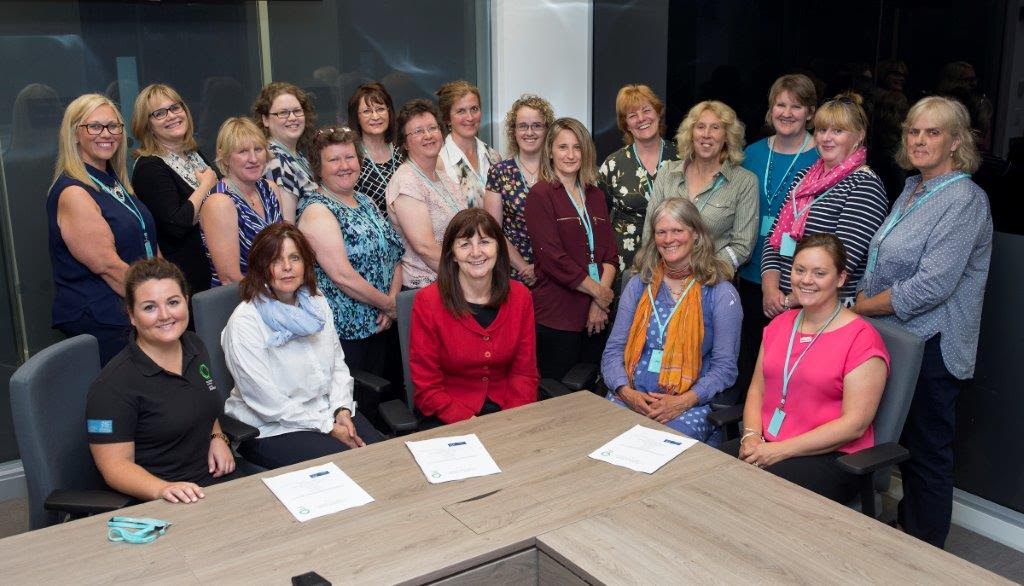
Welsh women in agriculture have set out their needs as the industry prepares to leave Europe, with avoiding a ‘hard’ Brexit set out as the top priority.
The farmers also said that continued access to a single market, an integrated rural training and education policy and the risks of reduced financial support are some of the critical issues.
These are some of the key findings set out in a new report which a group of more than 20 women, recently presented to Lesley Griffiths, Wales' Cabinet Secretary for the Environment and Rural Affairs.
Working within three regional groups, the women have over the past year collaborated to produce their report which will help influence the development of an agricultural policy for Wales post-Brexit.
The topics of discussion given most attention were summarised in seven specific headings namely trade; education; financial support; animal health and welfare, cross cutting themes including planning policy, broadband and rural support services; marketing and legislation.
The Cabinet Secretary said: “As we prepare for a future outside the EU it is vital we hear the views from as many people as possible to ensure Wales’ future agriculture policies benefit everyone within the industry, not just a select few.
“Women are under-represented in senior positions within agriculture and their voice often goes unnoticed. We must do more to raise the profile of women by improving their skills, confidence and ensuring the relevant support systems are in place.”
Trade
A ‘hard’ Brexit or no deal in terms of continued access to the Single Market is the worst case scenario for farmers in Wales especially those in the livestock sector, the farmers said in the report.

The report said: “To make a profit farmers need to be able to trade.
“If no deal is reached on exit, agriculture will fall under the World Trade Organisation Agreement on Agriculture with no non-EU Trade deals in place on exit, as the Treaty prevents us from negotiating formally such Free Trade Agreements until exit has taken place.
“That in-between period could be catastrophic for the industry. Farmers need to be assisted to understand the World Trade Organisation rules and the implications of tariffs on them so that they can start to make informed decisions about their businesses going forward, thus reducing uncertainty.”
Education
A recent NFU poll has indicated a rise in appreciation of the role of farmers and farming.
General support for British farming is on the increase with 92% of 2000 adults polled saying it is important to the economy and 77% saying it has a beneficial impact on the environment.
The report said: “The public as a whole are extremely interested in what farmers do day-to-day and farmers need to be trained in how to communicate with the public effectively and get key messages across.
“There has been a gap between 13-50 years old in terms of food and cookery education and this deficit needs to be plugged. Easy cooking recipes for adults who work full-time to be marketed with the farm produce at point of sale.
“Introduction of a Direct Debit way of buying meat so that the cost is spread and the farmer has certainty in terms of supply.”
Children
The report has said that as part of an education policy, children are educated from a young age where, how and the benefits of good and secure food production.
The report continued: “Encourage and enable school visits to farms, processing facilities and supermarkets to ensure the farm to fork concept is understood and experienced first-hand.
“Review of the health and safety policy to enable rather than prevent this taking place on local level. Farmers to have financial incentive to do this.
“Compulsory cookery lessons using ‘native’ ingredients should be re-introduced so that important life skills such as this are developed from an early age.”
Financial support for farmers
The farmers moved onto the subject of financial support, saying they are 'undervalued' in the UK.
“The farming profession carries with it a lot of pressure, financial risk and intense labour – yet farmers are expected to do that role and then alsodiversify or undertake a second job on top to bring money in.
“For example, you would not ask a doctor to make jam and bake so that they could bring in extra income to live on!
“More value should be placed on meat and food by consumers and appreciation given of the care and time afforded to that animal during its life.”
Animal health and welfare
The report said that it is essential that the UK's high standards are maintained and there are challenges in terms of disease control, some of which require long-term strategies to be developed to tackle them.
“Diseases such as bTBand BVD require a UK wide eradication strategy rather than a regional one to ensure that the UK becomes bTBandBVDfree as a whole at the earliest opportunity.
“A distinct Welsh approach which did not achieve that bTB free status in the same time frame could lead to market disadvantage for Welsh beef.
“We do not want any other country in the world to have an excuse to ban our produce under a Free Trade Deal on the basis that we are not able to provide parity in terms of our disease control measures.”
